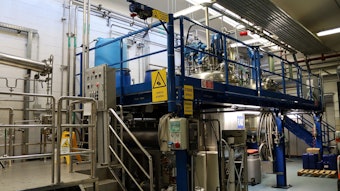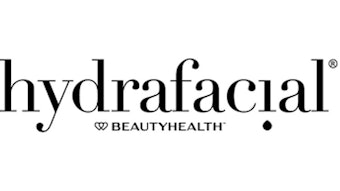- If executed correctly, outsourcing can save time, foster creativity, improve quality and make a company more flexible.
- A successful business partnership requires planning, communication, added value and growth.
- Many companies tend to overlook such “soft” savings in many supply chain initiatives.
- Dictating a process without fully understanding its implications will only lengthen and exacerbate the supply chain.
- Expect depth and not necessarily breadth from outsourcing partners.
Operating in the beauty industry is more challenging than ever. Increasing product obsolescence, tighter launch deadlines and shrinking profit margins are forcing brands to look for many ways to reduce the cost and time involved in manufacturing. Add the pressures of sustainability demands and a struggling global economy, and a lean supply chain becomes imperative to success.
Lean manufacturing was forged by the auto industry. When Henry Ford developed the assembly line at the beginning of the 20th century to produce his cars in a continuous flow, he set off a revolution that would change the manufacturing world forever. For decades, it was believed there was no more efficient way to mass produce than with the assembly line. Then Toyota introduced “Just in Time.” Hidden from the world for decades in a recovering, post-war Japan, Toyota disassembled Ford’s assembly line and created new principles such as reduced setup and changeover times, “turn and talk” work cells, quality circles and integrated flexibility. In the 1980s, Toyota’s lean production system caught the attention of manufacturers throughout the world. By the time “lean manufacturing” had become the new industry buzzword, Toyota had become the largest auto maker in the world. It’s worth noting that Toyota’s recent quality issues represent flaws in both design and management, but in no way undermine the value of lean manufacturing principles. Despite recent recalls, the Toyota Production System is still recognized as the most efficient manufacturing model in the world.
Today, lean manufacturing principles are being applied to every industry, including beauty. While most companies tend to focus on reducing inventory, lean manufacturing, in its truest sense, involves streamlining the entire supply chain, eliminating all unnecessary “touches” to become as efficient as possible. The goal is to create a continuous, responsive manufacturing flow that can produce to demand in the shortest time for the least cost. Beauty brand owners that have effectively implemented lean supply chain programs are not only more profitable, they become more successful overall. Product launches are smoother, quality is increased, and waste is nearly eliminated.
Incorporating Outsourcing
Most companies incorporate some level of outsourcing, which is typically employed to save costs. Very few companies are in a position to produce everything in-house, and the financial investment to do so would be unfeasible. But outsourcing can provide much more than mere cost savings. If executed correctly, it can also save time, foster creativity, improve quality and make a company more flexible. In short, outsourcing has the potential to make a company more lean.
Today’s consumers constantly expect more from beauty brands—more innovation, more creativity, more service, more value. In the same way, brand owners should expect more from their outsourcing suppliers. A successful business partnership requires planning, communication, added value and growth. A contract manufacturing relationship should be no different. Outsourcing is not simply a means to improve the bottom line and meet demands—it can be a vehicle to improve both the brand and the contract manufacturer. By learning from each other and adapting the supply chain accordingly, both companies can become leaner, more responsive and, ultimately, more profitable.
GDMI, Inc. develops formulas and contract manufacturing solutions for beauty brands. Throughout the years, it has learned to react to numerous challenges in the industry, and has grown to become more efficient and responsive. Immediate sampling of ingredients and speed-to-market incentives drive the company to constantly improve delivery to its customers. “The faster a formula is developed, the faster manufacturing may take place,” says Gina Ferrall, vice president and COO, GDMI. Through improving its own lean manufacturing, GDMI has been able to pass supply chain savings directly to its customers, making them more efficient and successful.
Ferrall has found more benefits from lean manufacturing. “Although lean operations have provided efficiency to us, they also push for improved service and quality. The lack of excess has helped to cultivate an atmosphere for doing things right the first time.” In an industry where quality issues can derail a launch or permanently damage a brand, a supplier that can deliver zero defects within shorter time frames is a definite asset. Some outsourcing partnerships even include full inspection and documentation, so final product arrives at the supplier with all quality checks in place, ready to integrate into the manufacturing process.
Expertise
Another time-saving benefit of outsourcing is the inclusion of experts in the manufacturing process. “When customers come to us, it’s usually because they don’t have the experience in manufacturing or complete supply chain management to bring their products to market efficiently,” explains Justin Ames, director of custom manufacturing, Neways Inc., a company that focuses on the R&D, manufacture and fulfillment of personal care products. Its expertise in the beauty market, combined with experience in continuous improvement and lean initiatives, provides brand owners with the necessary tools to improve production and speed to market.
After the initial research, one of the most difficult and time-intensive tasks in beauty product development is taking a product from trial to mass production. Unique skills and knowledge are required to make such a transition a success. Neways Inc. addresses this issue through a customized solution. “We’ve developed a very effective process for scaling up a product from the R&D stage to the production floor,” adds Ames. “This transition is a potential risk for waste in many organizations, and we’ve been able to save our customers time, money and material.”
The most innovative outsourcing companies provide value-added services to further save time. Surefil is a product formulation, compounding and packaging firm. CEO Bill Hunt indicates that Surefil has discovered a win-win solution by expanding its shipping capabilities.
“We’ve simplified and shortened the entire supply chain by offering transportation service directly to our customers’ customers.”
Eliminating several unnecessary steps, Surefil can strip days from delivery times and keep product in constant supply.
As with many supply chain initiatives, the results of lean deliveries often don’t have a clear time or dollar figure attached to them. Many companies tend to overlook such “soft” savings, but Hunt insists that the results can be astounding. “We estimate that shipping directly to the retail outlet saves about three weeks of inventory. If you have a $20 million product line, that translates to more than a $1 million cash savings on inventory, along with better service and efficiency.”
Beyond the inventory savings, a supply chain that consistently gets products to market faster is invaluable.
The Challenges
Along with all the potential for savings, outsourcing also presents challenges and pitfalls. A leaner supply chain can only be achieved when both parties are intentionally driving for the same goal.
Exchanging performance feedback and creative ideas to improve processes is necessary for both companies to grow and improve. Experts also insist that becoming lean through outsourcing requires constant communication and realistic expectations.
“Look for companies on a continuous cycle of implementing initiatives,” suggests Ames. “Neways Inc. is obsessed with quality and on-time deliveries. If one of our initiatives positively affects this measurement, then we build on it. If it doesn’t, we review it, change it, or throw it out and try something else.” Constant improvement of focused goals is the best way for a company to create an ongoing culture of lean manufacturing, and the effects always trickle down.
Truly, lean suppliers make their customers leaner.
Micromanaging is an important trap to avoid. While collaboration is essential, dictating a process without fully understanding its implications will only lengthen and exacerbate the supply chain. If an outsourcing company has been qualified, trust it to understand the best way to meet your requirements. “Let your supplier help you,” Hunt advises. “In so many cases, a marketing company feels it understands manufacturing better than the manufacturer. This is a huge mistake.”
Allow the experts to work for you and you will get great results.”
Lastly, Ferrall recommends maintaining a practical outlook. “Expect depth, but not necessarily breadth from your outsourcing partners. No company can be an expert in every aspect of the business. GDMI focuses heavily on product development and manufacturing of products. Our resources are fully dedicated to what we do best so we can provide the best quality and service with timely delivery,” she says. Be wary of any company claiming it can do everything, and don’t insist that outsourcing companies perform tasks for which they’re unsuited. The ideal supply chain is one in which every participant understands its contribution and focuses on doing its specific part to the best of its ability.
When it works, nothing can make a company more efficient and successful.
Outsourcing is a long standing tradition in the beauty industry. Like many long standing traditions, it includes many dated ideas and concepts. If businesses must become lean to compete in the current marketplace, it stands to reason that business relationships must also become lean in order to survive and thrive. The world is changing.
Business is changing. Luckily, outsourcing is also changing and providing opportunities for companies to improve more than just the bottom line. With the right outsourcing partnerships, companies can improve their products and themselves.
Dave Becker is a marketing consultant who has promoted lean manufacturing principles and solutions for the past 10 years.










